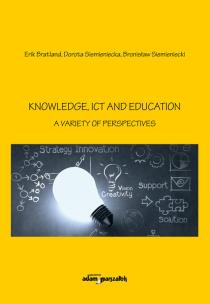- Regulamin
- Koszty dostawy
- Kontakt
- Dziś w ofercie 234 626 produktów
KSIĄŻKI
- Albumy
- Beletrystyka
- Biografie
- Dla dzieci i młodzieży
- Edukacja
- Ekonomia i biznes
- Ezoteryka
- Historia
- Informatyka
- Kalendarze
- Komiksy
- Kryminał i sensacja
- Kultura i sztuka
- Literatura faktu
- Literatura kobieca
- Literatura piękna
- Medycyna
- Nauka języków obcych
- Nauki humanistyczne
- Nauki przyrodnicze
- Nauki ścisłe
- Podręczniki
- Poradniki
- Prawo i administracja
- Przewodniki i podróże
- Psychologia
- Religia
- Sport
- Technika
- Zdrowie i uroda
ZABAWKI
- Artykuły dla niemowląt
- Bączki
- Bujaki i skoczki
- Ciągnij / pchaj
- Dla niemowlaka
- Grzechotki i gryzaki
- Karuzele i pozytywki
- Maty i centra zabaw
- Projektory i lampki
- Sortery i piramidki
- Zabawki
- Edukacyjne i kreatywne
- Figurki
- Klocki
- Lalki
- Pojazdy
- Pluszaki i maskotki
- Sport i rekreacja
- Zabawa w dom
- Zabawki drewniane
- Puzzle
- Do 200 elementów
- 201-500 elementów
- 501-1000 elementów
- Ponad 1000 elementów
- Puzzle 3D
ART. PAP
- Artykuły biurowe
- Artykuły piśmiennicze
- Bloczki i kartki samoprzylepne
- Dziurkacze
- Kalkulatory
- Nożyczki i nożyki
- Skoroszyty
- Teczki
- Wizytowniki
- Zszywacze
- Artykuły szkolne
- Akcesoria szkolne
- Modelowanie
- Notatniki i zeszyty
- Piórniki
- Plecaki i torby
- Pojemniki na śniadanie
- Pomoce naukowe
- Przybory matematyczne
- Przybory rysunkowe
- Upominki i gadżety
- Akcesoria do książek
- Artykuły balowe
- Breloki i zawieszki
- Drobiazgi, różności
- Kubki
- Oferta Świąteczna
- Papeteria, kartki i naklejki
- Skarpetki Many Mornings
- Upominki
GRY
MULTIMEDIA
- Audiobooki
- Beletrystyka
- Biografie i wspomnienia
- Dla dzieci i młodzieży
- Fantastyka
- Filozofia i religia
- Historia
- Literatura faktu i reportaż
- Poradniki
- Sensacja i kryminał
- Filmy DVD/BD
- Animowane
- Biograficzne
- Fantasy
- Horrory
- Komedie
- Romanse
- Science Fiction
- Sensacyjne / kino akcji
- Thrillery
- Muzyka CD
- Alternatywna
- Blues
- Dla dzieci
- Jazz
- Klasyczna
- Piosenka aktorska i poetycka
- Pop
- Rock
- Świąteczna i kolędy
- Akcesoria GSM
- Głośniki
- Kable i adaptery
- Klawiatury
- Myszy
- Słuchawki
PROMOCJE
ZDROWIE
LEGO

Knowledge, Ict and Education - A Variety of Perspectives
Autor: Bratland Erik Dorota Siemieniecka
Wydawca:
Adam Marszałek
ISBN:
9788380193192
EAN:
9788380193192
oprawa:
Miękka
format:
15.7x22.5
język:
polski
liczba stron:
166
rok wydania:
2016
(0) Sprawdź recenzje
Opis produktu
Zasady bezpieczeństwa
Knowledgehas becomethe centralcategoryin contemporaryneoliberal educationreforms.At the sametime,itbecomes increasinglyunclear whatwecan understandwithknowledgein education.The expandedconcept of knowledge, with an emphasis oncompetence and skills, has been characterized asbeing emptyorrhetorical. An implicitconsequence of this developmentis thatknowledgeis no longerunderstoodas something thatis objective andtrue.Foreducation, this developmentisproblematic. Whenknowledgeis no longera distinctcategory, the purpose of education becomes elusive.
The presentneoliberaleducationhave opened upforan extensive use ofICT in education. Althoughthe use ofdigitaltechnology in educationcan be seenindependently ofan expandedconcept of knowledge, ICT isbeing used asan argumentin favor ofan alternativeconcept of knowledgein education.Throughthis development,the expandedconcept of knowledgeachievesapedagogicaljustification, whether it is related topost-modernism, constructivism, socioculturaltheory orconnectivism. Thisline of argumentimpliesa shift towardcontext-contingentandlocalforms of knowledgein education, with particular emphasis onstudents' owninvolvementin the productionof knowledge.
This bookcovers avariety oftopics related to the transformation of knowledge in education.Whatkind of knowledgestudentsshouldhave accesstoin education isa key issueinthe ongoing debate, andthis bookprovides someanswers tothis important question.
CENA:
28,49
zł
Cena detaliczna:
33,60 zł
15%
rabatu
Najniższa cena z ostatnich 30 dni: 28,56 zł
Produkt niedostępny
Uwaga!!!
Ten produkt jest zapowiedzią. Realizacja Twojego zamówienia ulegnie przez to wydłużeniu do czasu premiery tej pozycji. Czy chcesz dodać ten produkt do koszyka?


Wybierz wariant produktu
